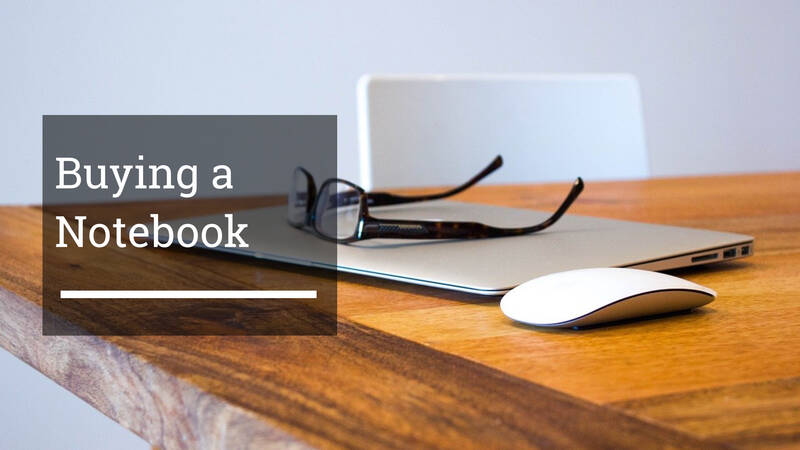
In the early 1990s, few people could imagine the impact the laptop would have on the computer industry. Its unique portability made the notebook a one-of-a-kind product.
Soon, it became a must-have for those constantly on the move from office, home, or school. Today, it is one of the best-selling computer hardware items of all time.
With a laptop, you can carry your work around comfortably, without having to worry about the large amount of cables, hardware, and space required to maintain a desktop computer.
Also, you can choose whether to work from the office or from home. A notebook is really useful in any situation.
Portability and mobility are the great advantages of having a laptop or notebook.
In your search on the Internet before purchasing a Notebook, you will be presented with a wide variety and amount of information. This can be quite disconcerting, so you need to know what features you need in a laptop.
Upgradable is an important consideration: the laptop you choose now may be the one that best meets your current needs; but in the future, you may need to update it.
You don’t want to spend valuable time and money buying a laptop that you’ll have to scrap or sell in the near future, due to what you might feel is inadequate from your current one. When considering quality improvement, you should think about memory or RAM and hard drive space.
The CPU, or processor, is the engine that will drive your laptop’s performance. Therefore, you should choose the fastest CPU available, depending on your budget and what you will be using the laptop for.
Tasks like word processing, emailing, and Internet browsing don’t require a fast CPU. But using CPU-intensive applications, such as spreadsheet processing or playing games, will perform better with a fast CPU.
RAM, or memory, is another important feature, and the more memory you have, the better. The performance of your notebook will suffer greatly if it does not have enough memory.
The minimum recommended these days is 1 Gigabyte of memory. Some experts recommend a minimum of 2 Gigabytes. The more memory you have, the better the performance and multitasking you can expect from your laptop.
The speed and capacity of your Notebook’s hard drive are important, as this is where you will install all your software and data (documents, database, photos, etc.).
Make sure you have enough space to store all your information that can be easily accessed. 40 Gigabytes of hard drive space is considered the minimum these days. Consider purchasing a laptop with 80 Gigabytes of disk space.
Note that Apple laptops now use Intel processors, which means that if you have a hard drive with enough disk space, you can partition your disk drive and install both Apple Mac software and Windows software, and switch between both.
You should also consider your Notebook screen, because this is what you are going to be looking at, and you should be happy with its resolution and size.
You’ll want a sharp, bright screen with good viewing, especially for photos. You can go look at different displays at a local electronics store and try to figure out which size and resolution you like best. Just make sure the display is active matrix and not passive matrix.
The other features that you will see to connect to your laptop are external devices like a mouse, printer, portable disk drive, scanner, etc.




1 Response
[…] In the early 1990s, few people could imagine the impact the laptop would have on the computer industry. Its unique portability made the notebook a […]